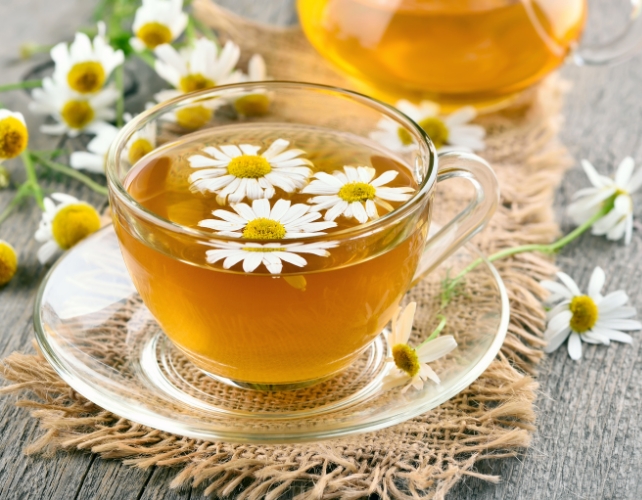Digestive discomfort – whether it's bloating after a heavy meal or the occasional bout of indigestion – can make anyone miserable.
While modern medicine offers effective treatments, there's renewed interest in natural ways to support gut health.
For centuries, herbs and spices have been used in traditional medicine for their digestive benefits, and modern science is beginning to back up some of these age-old remedies.
Related: Rosemary Can Sharpen Your Mind, And Could Help Fight Alzheimer's
These five herbs and spices have been linked to better digestion. Here's what the evidence shows.
1. Peppermint
Peppermint (Mentha piperita) is one of the best-known herbs for easing digestive distress. Its active compound, menthol, relaxes the muscles of the gut, helping to reduce bloating, gas and abdominal pain. It may also reduce sensitivity to pain, fight harmful bacteria and calm inflammation.
Clinical trials show that peppermint oil capsules can relieve irritable bowel syndrome (IBS) symptoms.
Peppermint oil may not suit people with acid reflux, because it can relax the lower oesophageal sphincter – the muscle that stops stomach acid flowing back into the throat – potentially triggering heartburn, particularly on an empty stomach. Peppermint tea is gentler and may offer similar benefits.
2. Chamomile
Chamomile (Matricaria chamomilla) is famous for its calming effects and may also soothe the digestive system. Chamomile tea is one of the world's most popular herbal drinks – about a million cups are consumed each day – and has long been used to ease indigestion, gas, stomach upset and gut irritation.
Evidence is mostly traditional, but animal studies show chamomile extract can reduce stomach ulcers thanks to its antioxidant properties. Chamomile may also help children: in one study, 57% of infants given a chamomile-based tea had relief from colic within a week, compared with 26% in the placebo group.
Another trial found that children with mild diarrhoea recovered more quickly when treated with a chamomile mixture. (These studies combined chamomile with other herbs.)
Chamomile is generally safe, but a few people may be allergic to it.

3. Carom Seeds (Ajwain)
Carom seeds (Trachyspermum ammi), or ajwain, are staples in Indian cooking and Ayurvedic medicine. They've been used for centuries to relieve gas and bloating, probably because of thymol, a compound that stimulates the stomach to produce more acid – sometimes up to four times more.
In animal studies, carom seeds increased the speed at which food moved through the digestive tract, boosted digestive enzyme activity and increased bile secretion, which helps break down fats.
Research also shows antispasmodic effects, relaxing gut muscles by blocking receptors that normally trigger contractions. Human data is limited, but culinary use is considered safe.
Pregnant or breastfeeding women should avoid large doses, as high intakes have been linked to miscarriages.
4. Fennel
Fennel (Foeniculum vulgare) is traditionally chewed after meals in many cultures to freshen breath and aid digestion. Its seeds are high in insoluble fibre, which helps prevent gas build-up and bloating. The NHS recommends about 30g of fibre a day.
Anethole, fennel's main active compound, is chemically similar to dopamine and relaxes gut muscles – a mechanism confirmed in lab studies. In a small trial in people with IBS, fennel reduced cramp-like abdominal pain, probably due to this muscle-relaxing effect.
Fennel water, mixed with sodium bicarbonate and syrup to make gripe water, has long been used to ease infant gas and bloating. Human trials are limited, but fennel's long history of safe use supports its traditional role in digestive care.
5. Cumin
Cumin (Cuminum cyminum) has an equally long track record for easing digestive problems. Modern studies suggest it boosts digestive enzyme activity, speeding the breakdown of food. It also encourages the release of bile from the liver, which helps digest fats and absorb nutrients.

One study conducted using rats found cumin shortened the time food spent in the digestive tract by about 25%, likely due to these enzyme and bile effects. In a clinical trial of 57 people with IBS, concentrated cumin significantly eased symptoms within two weeks.
Herbs and spices are not a replacement for medical treatment, but they can complement a balanced diet and offer gentle support for everyday digestive issues.
Related: A Simple Daily Habit Could Help Lower Your Blood Pressure
In normal amounts they are generally safe to cook with, but anyone with underlying conditions or on medication should consult a healthcare professional first.
For many, though, a cup of chamomile tea or a sprinkle of cumin may be a simple – and tasty – step toward better digestive health.![]()
Dipa Kamdar, Senior Lecturer in Pharmacy Practice, Kingston University
This article is republished from The Conversation under a Creative Commons license. Read the original article.
